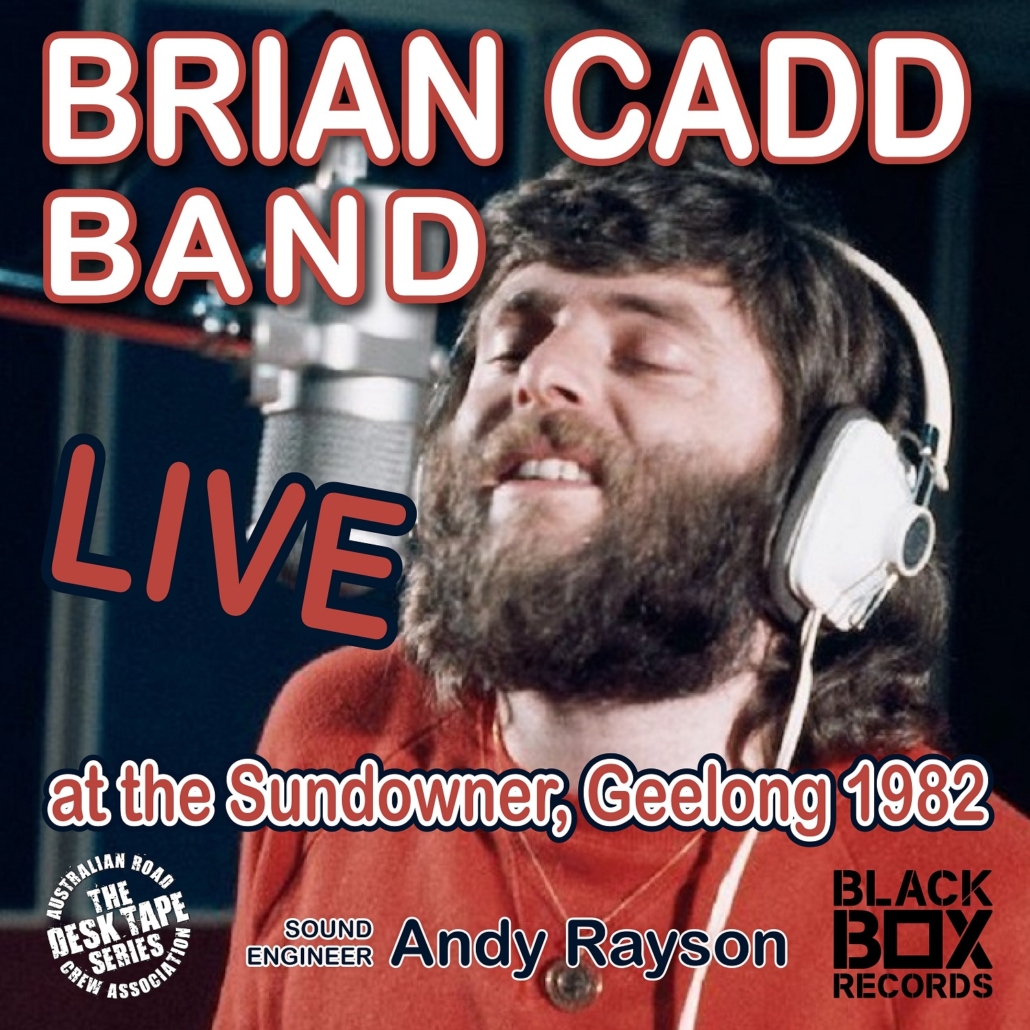
TRACKS
| 1 | Goodtime People |
| 2 | Baby Let Go |
| 3 | It’s Gotta Be Real To Me |
| 4 | Off The Hook |
| 5 | For The Love Of A Woman |
| 6 | C’est La Vie |
| 7 | Hits Medley: Alvin Purple, Little Ray of Sunshine, Ginger Man |
| 8 | White On White Eldorado |
| 9 | Keep On Rockin’ |
| 10 | Momma Don’t Dance |
| 11 | Keep On Rockin’ (reprise / band intro) |
THE BAND
| Brian Cadd | - | vocals, keyboards |
| Sam See | - | guitar |
| Jeremy Allsop | - | bass |
| Tony Naylor | - | guitar |
| Trevor Courtney | - | drums |
| Roger McLaughlin | - | cameo bass |
THE RECORDING
Brian Cadd Band
Live At The Sundowner Geelong 1982
All the ARCA Desk Tape Series recordings are available through Black Box Records – australianroadcrew.com.au
Mastering:
Phil Dracoulis
THE CREW
| Andy Rayson | - | sound |
| Michael Eastick | - | lights |
| Brett Allen | - | stage |
WHO WE ARE
The Australian Road Crew Association Limited (ACN 684 129 468) (ARCA) is a non-profit company limited-by-guarantee dedicated to helping Road Crew Past and Present.
Road Crew are the collective backbone of the Australian music industry. Road Crew have technical ability that are unique and wide ranging. Without dedicated Road Crew there would be no Live Production.


